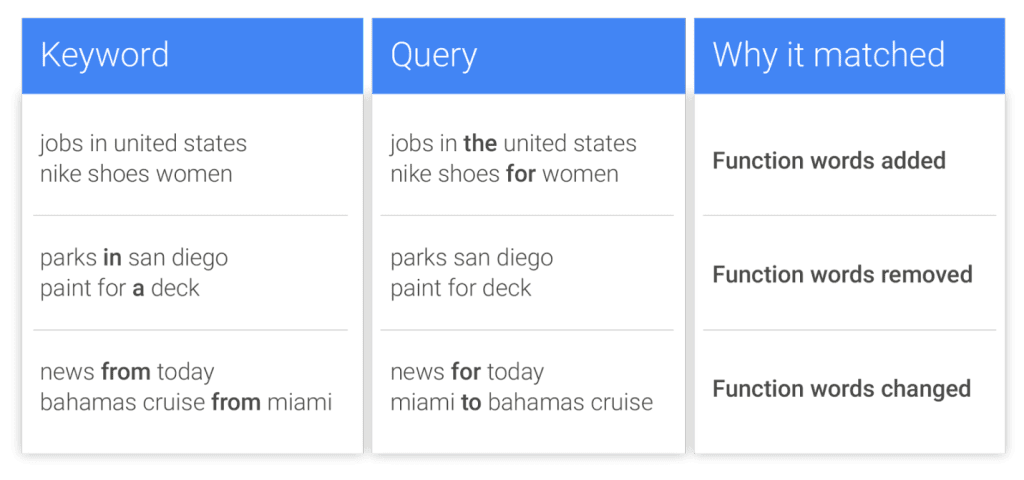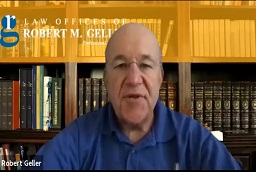What’s Changing:
Last Friday, Google announced some changes to the way exact match keywords function in Adwords. For a few years now, Phrase and Exact match have already included close variants, which are plurals, abbreviations, typos, etc. Now close variants will expand to cover variations in word order and function words. This means that Google may ignore or alter the word order and function words of a keyword phrase when determining if an ad should show for an exact match keyword.
Google’s reasoning behind this change is that most similar searches have the same intent, and so broadening the coverage of this match type will allow marketers to reach those additional users without building out and maintaining such exhaustive keyword lists.
Function Words:
Function words encompass prepositions, conjunctions, and articles. In most cases, these words can be added, removed, or replaced without changing the intent of the query. For example, a search query for “hotels in las vegas,” could match to the exact match term [hotels las vegas]. Dropping the function word does not alter the meaning or intent of that search.
Examples from Google:

Word Order:
When it comes to word order, two keywords can often have the same meaning even if the word order is different. Searches for “Hotels las vegas” and “las vegas hotels” have the same meaning. Google states that they will not add any words to a keyword nor will they alter word order if it would change the meaning of the search.
Example from Google:

Need Google Ads Management Help?
Free Google Ads account review for
qualified clients
Almost 20 years experience

There are certainly some examples where function words and word order do indeed change the meaning of a search query, such as for airline flight searches. “Flight from Miami” and “Flight to Miami” are completely different searches. And “JFK to MIA” and “MIA to JFK” are also not the same search, so Google should still recognize that and keep word order and function words intact in those cases. However, Google is relying on their artificial intelligence to differentiate when it’s ok to change the word order or function words of a query, and there may likely be a learning curve.
Impact for Advertisers:
Based on initial testing, Google claims that advertisers may see up to 3% more exact match clicks, while maintaining comparable clickthrough and conversion rates. The impact of this change will likely vary by client, and only time will tell how big this impact will be as it rolls out over the next few months. All advertisers should monitor their accounts closely over the coming weeks and months, paying particular attention to the performance of exact match keywords. It will also be important to stay on top of search query reports to catch irrelevant matches and update your negative keyword lists accordingly. Even a handful of irrelevant matches could add up to significant wasted spend if not caught early.



















